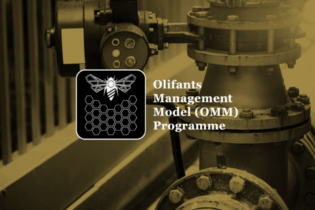In today’s business environment, companies cannot succeed without embedding environmental, social, and governance (ESG) practices into their businesses. Part of this roadmap towards sustainability must include effective waste management.
The thinking behind ESG is that it will allow investors to pursue both ethical and financial gains, at least in the long term. Furthermore, The United Nations Sustainable Development Goal 12, calls on organisations to use natural resources efficiently, implement environmentally sound waste management, and prevent and reduce waste through reuse and recycling.
Environmental factors
The environmental pillar of the ESG framework looks at an organisation’s impact on the environment – their carbon footprint, resource management, and environmental sustainability. How a company manages their waste falls under this pillar, said EnviroServ Waste Management’s compliance manager Neil Brink. “Is there a waste management strategy in place supporting the waste hierarchy which prioritises waste prevention, followed by waste reduction, reuse, recycling, recovery and as a last option, disposal to landfill? Businesses need to abide by the country’s National Waste Management Strategy and a responsible waste management provider, who walks you through the prevailing legislation, is essential for compliance.”
Going around circles can be productive
The circular economy sees a reduction in waste by reintroducing materials back into the production cycle. In a circular system, manufacturers design products to be reusable, such as electrical devices that are easier to repair. “By becoming part of the circular economy, your organisation gives a clear indication that it is on a path towards more robust ESG indicators,” Brink said. Integrating ESG factors with circular economy principles in the financial domain presents a rosier picture, envisioning a future where economic benefits are not achieved at the expense of the planet or society.
Good measurement and reporting practices mean better business EnviroServ’s reporting and management tools help companies understand and monitor their waste, allowing them to effectively respond to changes and implement new solutions as required. These metrics can include total weight of non-hazardous waste diverted from disposal, hazardous waste directed to disposal, and non-hazardous waste directed to disposal, with a breakdown in composition of waste. “Better measurement and reporting practices will help your company prevent waste at its source,” Brink said. “The sooner companies realise the growing importance of ESG reporting, the better for their sustainability and the bottom line.”






